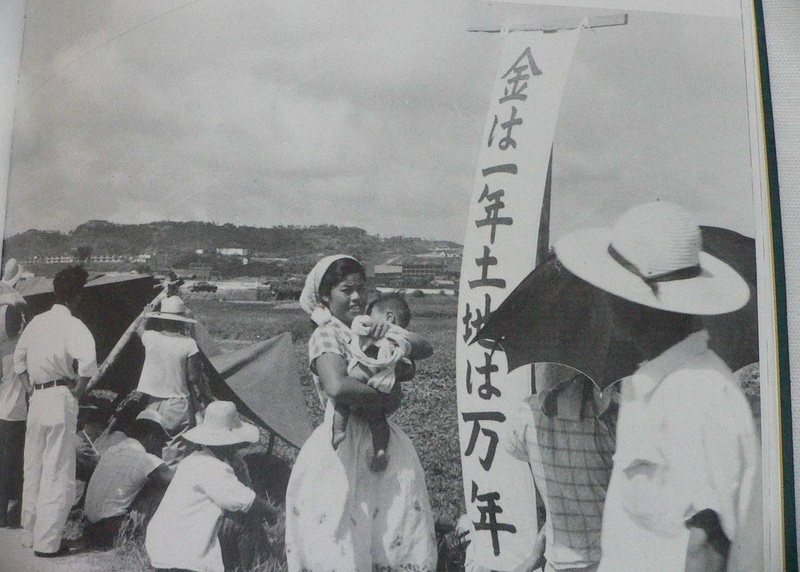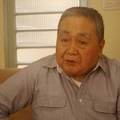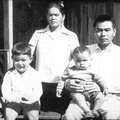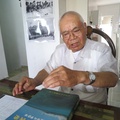The Yara family began their sewing business around 1970. The whole family worked from 7am to 12am. Yara says, "I have many sisters, so even women and children could sew. We worked hard, even sacrificing sleep."
She now lives alone, and her son visits her once a week from the nearby city of Guarulhos. "When I first came to Brazil, I wanted to go back to Japan. But as the saying goes, 'home is where you live,' and now I feel like this is my place," she says.
"How do you feel about having your land taken away by the U.S. military and coming to Brazil?" I asked.
After a few seconds of silence, Yara quietly replied, "We have to accept that what happened in the past is in the past," but added, "I don't want the people of Okinawa to forget that our land was taken. That's how hard we suffered."
Tarin Yukiko says with a laugh, "There's no need to pass on the stories. Let's forget about the past and look forward."
The reporter responded, "I believe that your painful experiences can serve as a lesson to prevent war from happening again. Having said that, don't you think it's a shame that the story of Isahama will not be passed down in the future?" To which she replied in a low voice, "But even so, we have to look forward."
Yukiko's house was in Koza City (now Okinawa City). After the war, the US military forcibly demolished the house to build a road. It was built with the savings her father had made while working in Hawaii for many years. "My father never said anything about it being demolished, but I remember he had a very sad look on his face. He passed away two months later. It must have been truly painful for him," she said.
Yukiko interrupted, "We lost the war, so it can't be helped. In Okinawa, the war wasn't over even long after it had ended...Let's stop talking about this."
Seeing Yukiko's crying face turn into a smile again, I couldn't ask any more questions.
"I want the people of today to walk a different path than the one we walked. I want us to be the last people to suffer this much," said Sawaki. "There must never be a war. There are bases in Okinawa. If the next war breaks out, Okinawa may be targeted with missiles," he said emphatically.
When asked by a reporter, "So you support the abolition of the bases?", he remained silent. The base issue still casts a shadow over Okinawa. While crimes committed by U.S. soldiers and airplane troubles are often talked about, it is not all detrimental to the people of Okinawa Prefecture, such as receiving royalties for military land and being employed at facilities related to the bases.
When a journalist told him, "Okinawa is now much less dependent on the base economy than it was after the return of the bases," he replied, "We shouldn't increase the number of bases any further. However, wouldn't eliminating them completely cause problems for Okinawa's economy? I think it would be good if we could eliminate them in a way that doesn't cause problems."
After the war ended, the Isahama immigrants were forced to leave their land, which had been their safe haven, and traveled to Brazil. The beautiful countryside of their hometown is a distant memory, and now Brazil is "their country." Sawaki says, "I have my family and friends here. This is the happiest time of my life."
Through the interviews, I was able to touch upon the complicated feelings these families had about their harsh circumstances. All three families faced harsh realities that they would not have been able to survive had they not reframed their situations in a positive way, and they lived their lives trying to push those realities into the past.
In fact, there are very few people left in Okinawa who can speak about the Isahama land struggle as a direct participant. This is why the presence of the Brazilian storytellers who shared their stories with us this time is so valuable.
*This article is reprinted from the Nikkei Shimbun (March 20, 2018).
© 2018 Rikuto Yamagata / Nikkey Shimbun







